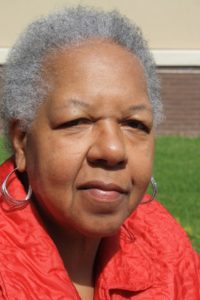 I have never liked going to the doctor, or really, any kind of medical care, but I felt tired and run down and decided to have a physical. Turned out I had high blood pressure. They also took blood and urine samples for testing, which revealed that I had elevated creatinine levels, and by the time I found out, I had advanced to end-stage renal failure. I had no pain; I just felt tired. I had no idea what was happening. The kidney doctor sent me to the hospital for a couple of days.
I have never liked going to the doctor, or really, any kind of medical care, but I felt tired and run down and decided to have a physical. Turned out I had high blood pressure. They also took blood and urine samples for testing, which revealed that I had elevated creatinine levels, and by the time I found out, I had advanced to end-stage renal failure. I had no pain; I just felt tired. I had no idea what was happening. The kidney doctor sent me to the hospital for a couple of days.
At the hospital, doctors told me that I would need to start dialysis, and we began the process to qualify for the waiting list. First, I had to be healthy. I’d need dialysis for a while to meet that requirement. I’d also need to go through a series of heart tests to make sure that my heart could withstand the surgery. Then I’d meet with a psychiatrist to determine if I was mentally prepared and had the emotional support to recover from the surgery. Finally, I had to meet with a financial advisor. Transplants obviously include the surgery costs, but there are other ongoing costs transplant recipients must be prepared to pay.
I began dialysis and decided to go to Mt. Sterling instead of Lexington. It seemed like an easier drive, but I still found it exhausting. I’d get up early in the morning to be there by seven. My dialysis lasted for almost four hours. I slept most of the time during dialysis.
I spent two years on dialysis waiting for my kidney, which really isn’t long. Some people wait six or seven years and they end up so that they can’t do anything but go to dialysis. I couldn’t bowl, and I had to watch what I ate, maintain a fluid level that wasn’t too high or too low, and keep a healthy weight. The hardest thing was when my family and I traveled. Because I had dialysis on Mondays, Wednesdays and Fridays, if I wanted to go anywhere and be gone on those days I had to find a dialysis clinic at my destination. When my family went on a cruise for my sister’s fiftieth birthday, we had to schedule it around my dialysis. Cruises have almost everything, but they don’t have dialysis clinics.
Still, dialysis wasn’t bad for me. I could continue do things. Many people can’t. The longer you spend on dialysis, the harder it is on your body. People who have to wait longer for a kidney can’t enjoy life. I felt tied to the dialysis, but I could at least do other things and get around outside of dialysis.
When I got the call that there was a kidney for me, I was at dialysis. True to form, I was sleeping. They had to wake me up. They were excited and telling me that there was a kidney for me. I still had about an hour of dialysis left, and I asked if I should leave right then for the hospital or stay and finish my dialysis. They told me to finish.
Everyone in dialysis was so happy for me. I called Miller, my sister, that’s what I call her. She was the first person I told. She cried. I cried. My mother cried. I called my husband and children, who were all happy and excited. At the same time, there was a family grieving for my donor. My kidney was from a young woman in her first year of college. She died in a car accident.
I went to UK for my transplant. UK is a great hospital, and I had nothing but the best of care. I spent seven days in the hospital. I think I lost some days there, because it didn’t seem that long. My body didn’t reject my new kidney at all. I had no complications. It was a great transplant experience.
Having a new kidney is like receiving a new life. I’m able to do the things I want to do and go when I want to go. I can take a vacation without worrying about dialysis. I can bowl again; I just have to use a lighter bowling ball. I don’t tire as easily, so I enjoy everything I do more.
Without my transplant, I’d have faced years of dialysis and perhaps even death. But I have a new life because of my new kidney. A life where I could encourage my oldest daughter to go back to school and get her nursing degree. Where I can see her happy in her career. Where I can still hope to do the same with my son. A life with eleven grandchildren. I love being able to do things for them that their parents can’t do right now.
I’ve also convinced my mother to become a registered organ donor. I think it comes down to, “What would Jesus do?” When you have something that someone can use, you have to be more than willing to give. Even as a kidney transplant recipient, I am a registered organ donor.

